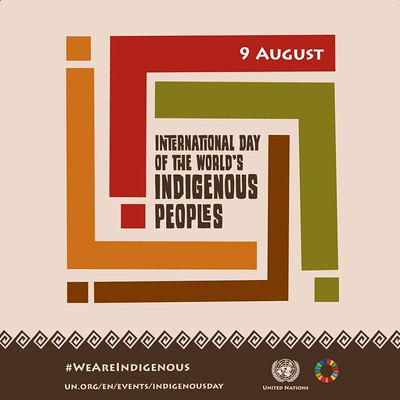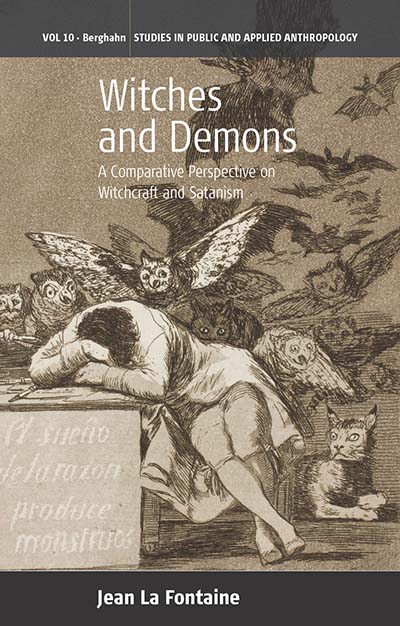9 November

The 9th of November is World Adoption Day! As described on the official website, “The day was created for the purpose of celebrating family, raising awareness for adoption and raising funds to support families in the adoption journey“. This year marks a decade since its creation. Read more from the organisation’s page here.
We would like to highlight two of our book series: Fertility, Reproduction and Sexuality: Social and Cultural Perspectives, and Rethinking Biosocial Anthropology. For more details on these series, scroll down to the second section of this blog.
The first section of our blog is a collection of our latest titles relating to the studies of adoption, including books from the highlighted series, ranging from recent to backlist.
You might also be interested in our blog post marking the International Day of Care and Support.
Berghahn books in the study of adoption

Adoption, Emotion, and Identity
An Ethnopsychological Perspective on Kinship and Person in a Micronesian Society
Manuel Rauchholz
“It makes a unique contribution to our understanding of traditional child adoption, a topic that has received considerable attention from anthropologists working in Oceania, and especially in Micronesia.” • Donald H. Rubinstein, University of Guam
Volume 8, Person, Space and Memory in the Contemporary Pacific
Read our freely available introduction.

Ethnographic and Historical Perspectives on the Kazakh of Western Mongolia
Anna Odland Portisch
Telling the story of the author’s time living with a Kazakh family in a small village in western Mongolia, this book contextualizes the family’s personal stories within the broader history of the region. […] These are stories of migration across generations, bride kidnappings and marriage, domestic violence and alcoholism, adoption and family, and how people have coped in the face of political and economic crisis, poverty and loss, and, perhaps most enduringly, how love and family persist through all of this.
Volume 1, Lifeworlds: Knowledges, Politics, Histories
Read our freely available introduction.

In the Best Interests of the Child
Loss and Suffering in Adoption Proceedings
Mili Mass
“This is an important book, which examines the practice of adoption from the perspective of an expert who has been exposed to the defective operation of a bureaucratic system. It re-examines critically and rigorously the role of social workers in adoption cases and it does so in a forceful and compelling way.” · Alon Harel, Hebrew University of Jerusalem
Read our freely available introduction.

European Kinship in the Age of Biotechnology
Edited by Jeanette Edwards and Carles Salazar
“This superb anthology extends the emphasis on technology that has become such a prominent feature of much recent anthropological work on kinship…In this richly ethnographic text, the most familiar problems produce the most unusual answers…Each chapter brilliantly combines kinship as a matrix with kinship as a tool, using ethnographic examples that leap off the page.” · Journal of Anthropological Research
Volume 14, Fertility, Reproduction and Sexuality: Social and Cultural Perspectives

Biological and Social Perspectives on Alloparenting in Human Societies
Edited by Gillian Bentley and Ruth Mace
“[This book] brings together high-quality papers from many different fields: endocrinology, evolutionary biology, demography, economics, psychology, sociology, anthropology… It can be seen as a practical tool for researchers in the field, and it provides a large amount of data across a wide range of populations and helps to find a common ground between theories emerging from different fields […]” · BioOne. Research Evolved
Volume 3, Rethinking Biosocial Anthropology

Reproductive Technology and the Shariah in Lebanon
Morgan Clarke
“Social scientists interested in any of these areas of study will benefit from familiarizing themselves with Clarke’s work. Those who are particularly interested in the study of reproductive technologies will find notions of milk kinship and adoption aversion useful in considering how ART is contextualized globally. Students of kinship will benefit from this text because it provides a case study of how a culturally relative approach to kinship enriches our understanding of the meanings and markers of the important relationships within a culture/religious tradition.” · Contemporary Sociology
Volume 16, Fertility, Reproduction and Sexuality: Social and Cultural Perspectives

Perspectives from Kinship and Genetics
Edited by Peter Wade
Race, ethnicity and nation are all intimately linked to family and kinship, yet these links deserve closer attention than they usually get in social science, above all when family and kinship are changing rapidly in the context of genomic and biotechnological revolutions. Drawing on data from assisted reproduction, transnational adoption, mixed race families, Basque identity politics and post-Soviet nation-building, this volume provides new and challenging ways to understand race, ethnicity and nation.
Volume 1, Rethinking Biosocial Anthropology

Gender, Technology, and Biopolitics in the New Millennium
Edited by Marcia C. Inhorn
Reproductive disruptions, such as infertility, pregnancy loss, adoption, and childhood disability, are among the most distressing experiences in people’s lives. Based on research by leading medical anthropologists from around the world, this book examines such issues as local practices detrimental to safe pregnancy and birth; conflicting reproductive goals between women and men; miscommunications between pregnant women and their genetic counselors; cultural anxieties over gamete donation and adoption; the contested meanings of abortion; cultural critiques of hormone replacement therapy; and the globalization of new pharmaceutical and assisted reproductive technologies […]”.
Volume 11, Fertility, Reproduction and Sexuality: Social and Cultural Perspectives

Transnational Adoption in a Global Perspective
Signe Howell
“Transnational adoption is growing phenomenon and Norway has led the way in its legal and social development. In this pioneering study, Norwegian scholar, Signe Howell, brings to the subject not only anthropological insight but the personal experience of an adoptive parent. Her remarkable book is based on comprehensive research both in Norway and in the countries of origin of adopted children, throwing new light on the way that the children identify as Norwegians despite the tendency of adults to associate with their birth places. Howell’s findings are of great interest and significance for families and policy makers worldwide”. · John R. Gillis, Professor Emeritus of History, Rutgers University

The Culture of Policies and Practices in American Adoption
Judith S. Modell
“This book offers a thought-provoking exposition of the ironies of adoption, and by extension, the inconsistencies of our social attitudes toward parenting in general.” · Journal of Sociology and Social Welfare
Berghahn Books Series with titles on adoption
Fertility, Reproduction and Sexuality: Social and Cultural Perspectives
General Editors: Soraya Tremayne, Founding Director, Fertility and Reproduction Studies Group and Research Affiliate, Institute of Social and Cultural Anthropology, University of Oxford, Marcia C. Inhorn, William K. Lanman, Jr. Professor of Anthropology and International Affairs, Yale University, and Philip Kreager, Director, Fertility and Reproduction Studies Group, and Research Affiliate, Institute of Social and Cultural Anthropology and Institute of Human Sciences, University of Oxford
Understanding the complex and multifaceted issue of human reproduction has been, and remains, of great interest both to academics and practitioners. This series includes studies by specialists in the field of social, cultural, medical, and biological anthropology, medical demography, psychology, and development studies. Current debates and issues of global relevance on the changing dynamics of fertility, human reproduction and sexuality are addressed.
Rethinking Biosocial Anthropology
Series Editors: Hayley MacGregor, Professor of Medical Anthropology and Global Health, Institute of Development Studies, and Ian Harper, Professor of Anthropology of Health and Development, University of Edinburgh
This series invites submissions (monographs or edited volumes) from scholars engaged in rethinking the ‘biosocial’ and the interconnectedness of biological and social dynamics in shaping human experience.
In recent years, significant changes and new phenomena such as the COVID-19 pandemic, advances in neurosciences and genetics, and concern about the anthropocene and global warming have advanced thinking about complex biosocial relations and the ways in which these come to be mutually constituted. Contemporary phenomena are also redefining the boundaries between the bio- and social sciences and the humanities. This involves a wide range of academic disciplines at the intersections of natural, ecological, medical and social sciences, as linked to social and biological anthropology, sociology, environmental studies, biomedicine, global health and also development studies.
We seek multiple perspectives, inter and cross-disciplinary conversations that value the varied contributions required to address our current global challenges across a diversity of regions. We are also interested in historical accounts and genealogies of the biosocial in different traditions. Thus the aim of this series is to make available to the informed public, undergraduates and postgraduate students the current and cutting edge research and debates that define these emergent parameters.
The series is supported by the RAI Biosocial Committee.




























































